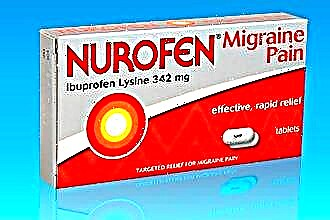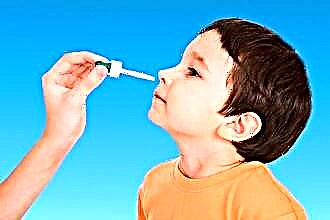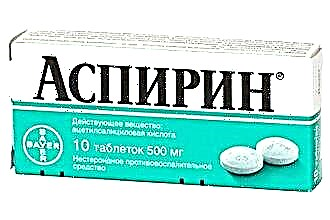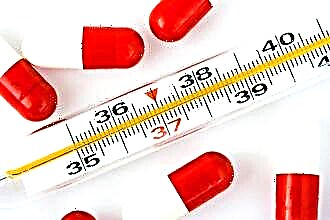Nasal congestion and obsessive coughing are familiar symptoms to many people and are by no means desirable - but what if they do appear? No one wants to suffer from a cold by wasting handkerchiefs and wearing a protective mask; in addition, due to a violation of nasal breathing, the head hurts and is dizzy, and as a result of coughing, there is also a sore throat. It is not always possible to take sick leave if an important project is waiting at work or a trip is planned. How to quickly cure a cough and a runny nose, can it be done within a day?
Choice of treatment
 What to do if a stuffy nose and a cough bother you? Can you ignore these symptoms by devoting time to daily activities - or should you stay in bed? In the modern world, the pace of life can often be called nothing other than impetuous, and the disease can most categorically affect plans and schedules. Therefore, many people think: maybe there are methods to get rid of unpleasant manifestations during the day? It is worth considering this issue in more detail.
What to do if a stuffy nose and a cough bother you? Can you ignore these symptoms by devoting time to daily activities - or should you stay in bed? In the modern world, the pace of life can often be called nothing other than impetuous, and the disease can most categorically affect plans and schedules. Therefore, many people think: maybe there are methods to get rid of unpleasant manifestations during the day? It is worth considering this issue in more detail.
Neither a runny nose nor a cough appears just like that. They become a kind of signals about malfunctions inside the body, which need to be paid attention to, even if the general condition is slightly disturbed. What reasons can explain their occurrence?
- Infection.
These are ARVI (acute respiratory viral infection), colds (activation of their own microflora after hypothermia), various bacterial infections. There are many types of infectious diseases that are characterized by both a cough and a runny nose.
- Allergy.
With allergies, the immune system begins to react inadequately to certain substances (for example, household dust or animal hair), perceiving them as a threat to the body. As a result, antibodies appear, specific sensitivity is formed, and upon contact with an allergen, a person experiences unpleasant symptoms every time.
- Injury.
It is possible to injure the mucous membrane of the respiratory tract in different ways - cold and hot air, chemicals, mechanical action (friction, pressure). Damage leads to inflammation, and the addition of a secondary infection is also often observed.
A runny nose and cough are the result of inflammatory changes. Less commonly, a cough may appear as a defensive reaction when a foreign body enters the airways, but in this case, the symptoms can be eliminated by removing the stuck object, and if complaints persist, we are talking about trauma, which means inflammation. Depending on the type of inflammation and the cause of the injury, the appropriate treatment for the patient is selected.
The formation of an inflammatory focus is a typical pathological process that arises, proceeds and ends in accordance with certain physiological laws. It cannot be interrupted - at least, a safe and effective method is currently unknown. Therefore, the average duration of the period for which people are cured is about 7 days.
Thus, in order to treat a runny nose and cough quickly, without allowing complications, you need to find out why these symptoms appeared.
What can be done
After reading the previous section, you can recall a popular saying that says: "With treatment, a runny nose goes away in seven days, without treatment - in a week." In many cases, it is not far from the truth, but this does not mean at all that you need to abandon therapy. It will not be possible to completely recover in a day, but there are ways to alleviate the condition - if you use them wisely, you can successfully deal with painful symptoms. Apply:
- non-drug methods;
- drug therapy.
To begin with, let's dwell on non-drug methods, since they are the same for all possible reasons for prolonged nasal congestion and persistent cough:
- Get enough rest.
The best solution is bed rest, at least during the period of fever. But if home rest is not available for some reason, try to limit physical activity, avoid anxiety - the body is already vulnerable. Sleep as much as possible, at least 8 hours a day.
- Satisfactory indoor climate.
The microclimate is the humidity and temperature in the room - the recommended values are 50-70% and 19-22 ° C, respectively. In this case, sharp fluctuations in indicators are undesirable. With a runny nose and cough, a lot of mucus is formed, the functioning of local defense mechanisms is disrupted. Therefore, it is worth taking care of the inflamed mucous membrane, to prevent additional damage.
- Dust control.
Dust is undeniably one of the worst enemies of the respiratory mucosa. It leads to dryness, is an allergen, and often contains infectious agents. Therefore, a patient, especially an allergic person, needs to be in a room without carpets, paper books, soft toys and other things that could accumulate dust. In addition to airing, regular wet cleaning is also necessary, and during the period of exacerbation of symptoms, it should not be carried out by the patient.
- Drinking regime.
It is important for the patient to drink enough fluids throughout the day. This will allow you to remove toxins, with a productive cough, it will facilitate the secretion of mucus, and helps to moisturize the mucous membranes. You can drink clean water, tea, fruit drink, compote. For allergies, you need to choose those drinks that are allowed in the diet.

It is easier to breathe in moist cool air that is not oversaturated with dust. Sometimes correction of the microclimate allows you to quickly get rid of a runny nose and cough - if they were not caused by an infection. To have an accurate idea of the air humidification and heating performance, it is worth purchasing a room hygrometer and thermometer.
Infection
How to get rid of cough and nasal congestion with colds or SARS? A runny nose characterizes rhinitis or sinusitis, and a cough can be both a consequence of drainage from the nose along the back of the pharynx (postnasal syndrome), and a sign of pharyngitis, tracheitis, bronchitis, pneumonia. At the reception, the doctor will definitely clarify whether there is sputum when coughing and chest pain, what kind of cough tremors are - constant, paroxysmal. All these features are important, so do not rush to purchase vasoconstrictor nasal drops and medicines marked "Cough" at the pharmacy without knowing the exact diagnosis.
In the treatment are used:
- decongestants, or vasoconstrictor nasal drops (Oxymetazoline, Xylometazoline) - temporarily eliminate edema, reduce mucus production and restore nasal breathing, do not treat inflammation, are used as symptomatic agents for rhinitis and sinusitis; they cannot be used longer than 5-7 days;
 non-steroidal anti-inflammatory drugs (Nurofen, Panadol) - help fight fever (like antipyretics), headache, but, despite the name, cannot treat inflammation of the respiratory tract and are exclusively symptomatic drugs;
non-steroidal anti-inflammatory drugs (Nurofen, Panadol) - help fight fever (like antipyretics), headache, but, despite the name, cannot treat inflammation of the respiratory tract and are exclusively symptomatic drugs;- antiseptics, anti-inflammatory (Pinosol for the nose, Strepsils, Decatilen, Falimint, Islam-moos for throat absorption) - help fight swelling and inflammation, often contain analgesic components (Lidocaine);
- expectorants (Acetylcysteine, ACC, Ambroxol) - indicated for viscous, difficult to separate sputum, not needed for dry cough;
- saline solutions (Aqua Maris, Marimer) - liquefy mucus in the nose, eliminate dryness, are used to rinse the nose.
In the absence of complications, the doctor will most likely advise you to regularly rinse your nose, take antipyretics when the temperature rises to 38.5 ° C or more, dissolve anti-inflammatory lozenges 4-6 times during the day, gargle with saline, chamomile infusion. With severe sore throat, inflammation of the tonsils, antibiotics may be needed (Augmentin, Cefutil). For "chest" coughs that produce phlegm, expectorant drugs are often added to the treatment.
If you follow the recommendations, you can feel relief by the next morning. But not all cases improve quickly. Remember that you should not lower the subfebrile temperature (up to 38 ° C) - this is a protective reaction of the body, stopping which infection is only beneficial. You should also know that taking "cold sachets" (Fervex, Antiflu) will not replace full therapy, and the presence of an antipyretic component in the composition makes it undesirable to use in the absence of febrile fever.
If a runny nose and cough appeared acutely, accompanied by fever, in no case should the cough tremors be suppressed with antitussive drugs.
Coughing helps clear mucus from the airways. Medicines from the antitussive group (for example, based on Codeine) are needed only for a prolonged, exhausting dry cough, which cannot be eliminated by another method; a cold is not an indication for admission.
Allergies and trauma
Cough and nasal discharge are symptoms of respiratory allergies, that is, allergic lesions of the respiratory tract. Complaints of coughing, rhinorrhea (nasal mucus) and impaired nasal breathing may occur with allergic rhinopharyngitis.
An allergic reaction differs from an infection in that it can be relieved (stopped) relatively quickly with medication. How should a patient be treated? The following algorithm is used:
- Removing the allergen, if possible (such as rinsing the nose with saline and gargling with saline or plain water).
 Taking an antihistamine prescribed by a doctor (Cetrin, Desloratadine).
Taking an antihistamine prescribed by a doctor (Cetrin, Desloratadine).- Prevention of re-exposure to the allergen.
If symptoms appear, you should consult a doctor who will select drugs and give recommendations that are appropriate in a particular case. It is possible to get rid of cough and runny nose with allergies only temporarily. Although medications can affect the course of the disease, one cannot expect that a single pill will solve the problem - in most cases, long-term use of various antiallergic drugs, symptomatic therapy (for example, the previously mentioned decongestants) are required.
In case of injury, it is important to stop the effect of the damaging factor, consult a doctor for examination and receive recommendations - immediately after a traumatogenic episode, the patient may inadequately assess the severity of the injury, but it is in the initial period that assistance is most effective. It is especially necessary to pay special attention to injuries resulting from contact with chemical aggressors - alkalis and acids.
Traditional methods
Folk recipes can be helpful for colds and coughs. How to cure unpleasant symptoms with their help? Can be used:
- milk with honey;
- onion;
- beet juice.
Warm milk with honey and, if desired, a lump of butter warms up perfectly and helps with obsessive painful cough. It is best to drink it at night.
The onion is grated and spread on a plate - it contains phytoncides that can fight pathogenic microorganisms. It is not possible for all patients to lubricate the nose with onions, so another method is practiced - to breathe over a plate for several minutes, closing your eyes.
Beet juice is obtained from grated raw beets, filtered through cheesecloth, smeared with it on the nasal mucosa from the inside several times a day. Beetroot juice with honey can be used for gargling to relieve inflammation.
Symptoms such as nasal congestion and coughing require complex treatment that cannot be completed overnight. In case of allergies, after elimination of symptoms, it is necessary to find out the causative allergen, choose therapy. In order for the methods used to alleviate the condition to be effective, you should seek recommendations from your doctor.

 non-steroidal anti-inflammatory drugs (Nurofen, Panadol) - help fight fever (like antipyretics), headache, but, despite the name, cannot treat inflammation of the respiratory tract and are exclusively symptomatic drugs;
non-steroidal anti-inflammatory drugs (Nurofen, Panadol) - help fight fever (like antipyretics), headache, but, despite the name, cannot treat inflammation of the respiratory tract and are exclusively symptomatic drugs; Taking an antihistamine prescribed by a doctor (Cetrin, Desloratadine).
Taking an antihistamine prescribed by a doctor (Cetrin, Desloratadine).

